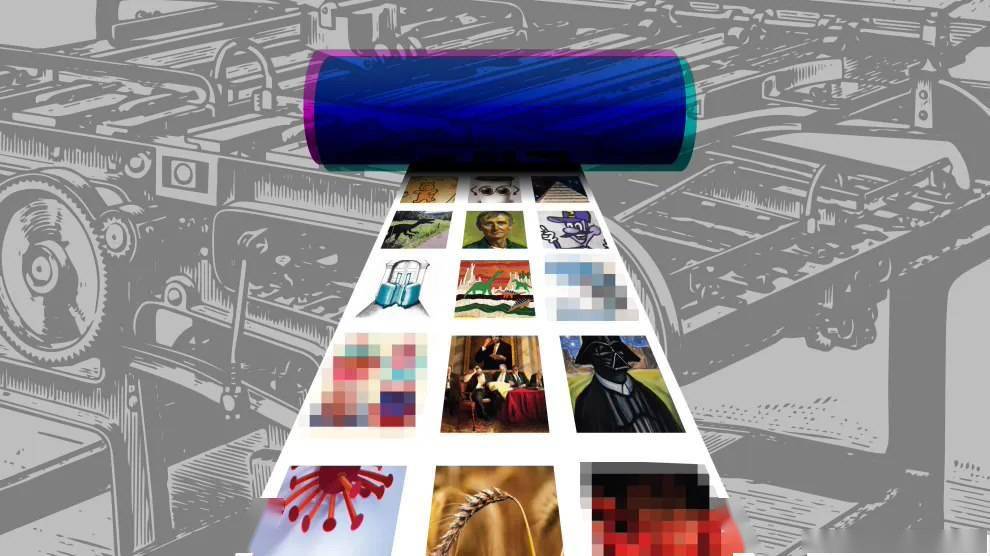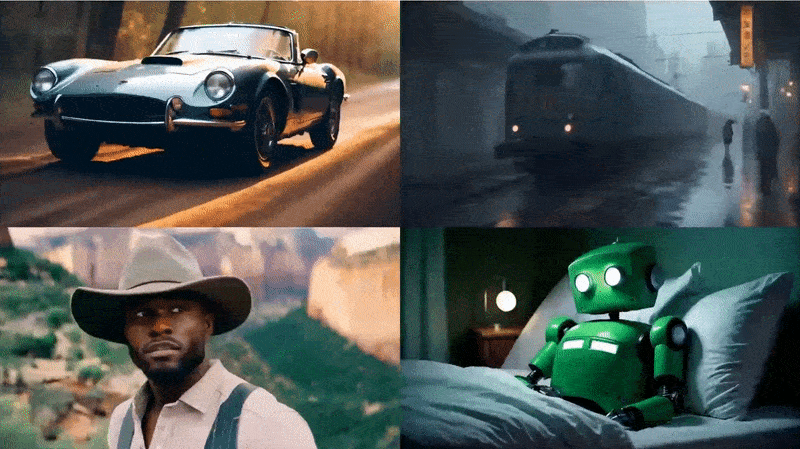 Technology peripherals
Technology peripherals
 AI
AI
 Stable AI releases stable video diffusion model to generate videos based on images
Stable AI releases stable video diffusion model to generate videos based on images
Stable AI releases stable video diffusion model to generate videos based on images
IT House News on November 22, Stability AI, a startup company focused on developing artificial intelligence (AI) products, released its latest AI model - Stable Video Diffusion. This model can generate videos from existing images and is an extension of the previously released Stable Diffusion text-to-image model. It is also one of the few AI models on the market that can generate videos so far.

However, this model is not currently open to everyone. Stable Video Diffusion is currently in what Stability AI calls a “research preview” stage. Those who want to use this model must agree to some terms of use, which specify the intended use cases of Stable Video Diffusion (such as "educational or creative tools", "design and other artistic processes", etc.) and unintended use cases (such as " a factual or true expression of a person or event").
Stable video diffusion actually consists of two models - SVD and SVD-XT. SVD can convert static pictures into 14-frame 576×1024 pixel videos. SVD-XT uses the same structure, but the number of frames is increased to 24. Both can produce video at 3 to 30 frames per second
According to a white paper released by Stability AI along with Stable Video Diffusion, SVD and SVD-XT were initially trained on a dataset containing millions of videos and then on a smaller dataset Without "fine-tuning", this data set only has a few hundred thousand to about a million video clips. The source of these videos is not entirely clear, and the white paper suggests that many are from publicly available research data sets, so it is impossible to tell whether there are any copyright issues.
Both SVD and SVD-XT are capable of generating high-quality four-second videos, and judging from carefully selected samples on the Stability AI blog, the quality is comparable to the latest video generation models from Meta, Google, AI startup Runway, and Pika Labs AI-generated videos comparable to

IT House noticed that there are also limitations to the proliferation of stable videos. Stability AI is also very candid about this, saying the models cannot generate videos without motion or slow camera pans, cannot be controlled with text, cannot render text (at least not clearly), and cannot do it consistently "correctly" Generate faces and characters
Although in its early stages, Stability AI notes that these models are highly scalable and can be adapted to a variety of use cases such as generating 360-degree views of objects
Stability AI’s ultimate goal appears to be to commercialize it, saying Stable Video Diffusion has potential applications in “advertising, education, entertainment and other fields.”
The above is the detailed content of Stable AI releases stable video diffusion model to generate videos based on images. For more information, please follow other related articles on the PHP Chinese website!

Hot AI Tools

Undresser.AI Undress
AI-powered app for creating realistic nude photos

AI Clothes Remover
Online AI tool for removing clothes from photos.

Undress AI Tool
Undress images for free

Clothoff.io
AI clothes remover

AI Hentai Generator
Generate AI Hentai for free.

Hot Article

Hot Tools

Notepad++7.3.1
Easy-to-use and free code editor

SublimeText3 Chinese version
Chinese version, very easy to use

Zend Studio 13.0.1
Powerful PHP integrated development environment

Dreamweaver CS6
Visual web development tools

SublimeText3 Mac version
God-level code editing software (SublimeText3)

Hot Topics
 1386
1386
 52
52
 I Tried Vibe Coding with Cursor AI and It's Amazing!
Mar 20, 2025 pm 03:34 PM
I Tried Vibe Coding with Cursor AI and It's Amazing!
Mar 20, 2025 pm 03:34 PM
Vibe coding is reshaping the world of software development by letting us create applications using natural language instead of endless lines of code. Inspired by visionaries like Andrej Karpathy, this innovative approach lets dev
 Top 5 GenAI Launches of February 2025: GPT-4.5, Grok-3 & More!
Mar 22, 2025 am 10:58 AM
Top 5 GenAI Launches of February 2025: GPT-4.5, Grok-3 & More!
Mar 22, 2025 am 10:58 AM
February 2025 has been yet another game-changing month for generative AI, bringing us some of the most anticipated model upgrades and groundbreaking new features. From xAI’s Grok 3 and Anthropic’s Claude 3.7 Sonnet, to OpenAI’s G
 How to Use YOLO v12 for Object Detection?
Mar 22, 2025 am 11:07 AM
How to Use YOLO v12 for Object Detection?
Mar 22, 2025 am 11:07 AM
YOLO (You Only Look Once) has been a leading real-time object detection framework, with each iteration improving upon the previous versions. The latest version YOLO v12 introduces advancements that significantly enhance accuracy
 Best AI Art Generators (Free & Paid) for Creative Projects
Apr 02, 2025 pm 06:10 PM
Best AI Art Generators (Free & Paid) for Creative Projects
Apr 02, 2025 pm 06:10 PM
The article reviews top AI art generators, discussing their features, suitability for creative projects, and value. It highlights Midjourney as the best value for professionals and recommends DALL-E 2 for high-quality, customizable art.
 Is ChatGPT 4 O available?
Mar 28, 2025 pm 05:29 PM
Is ChatGPT 4 O available?
Mar 28, 2025 pm 05:29 PM
ChatGPT 4 is currently available and widely used, demonstrating significant improvements in understanding context and generating coherent responses compared to its predecessors like ChatGPT 3.5. Future developments may include more personalized interactions and real-time data processing capabilities, further enhancing its potential for various applications.
 Best AI Chatbots Compared (ChatGPT, Gemini, Claude & More)
Apr 02, 2025 pm 06:09 PM
Best AI Chatbots Compared (ChatGPT, Gemini, Claude & More)
Apr 02, 2025 pm 06:09 PM
The article compares top AI chatbots like ChatGPT, Gemini, and Claude, focusing on their unique features, customization options, and performance in natural language processing and reliability.
 How to Use Mistral OCR for Your Next RAG Model
Mar 21, 2025 am 11:11 AM
How to Use Mistral OCR for Your Next RAG Model
Mar 21, 2025 am 11:11 AM
Mistral OCR: Revolutionizing Retrieval-Augmented Generation with Multimodal Document Understanding Retrieval-Augmented Generation (RAG) systems have significantly advanced AI capabilities, enabling access to vast data stores for more informed respons
 Top AI Writing Assistants to Boost Your Content Creation
Apr 02, 2025 pm 06:11 PM
Top AI Writing Assistants to Boost Your Content Creation
Apr 02, 2025 pm 06:11 PM
The article discusses top AI writing assistants like Grammarly, Jasper, Copy.ai, Writesonic, and Rytr, focusing on their unique features for content creation. It argues that Jasper excels in SEO optimization, while AI tools help maintain tone consist



